[Disclaimer: Consult a qualified healthcare professional before using peptides or similar compounds. The information provided should not be considered medical advice. Many of these substances require further research to fully understand their effects and safety profile.]
Peptides are becoming popular among bodybuilders for good reasons. These tiny chains of amino acids can boost your growth hormone, speed up recovery, and even help build muscle. It’s like having a secret in your gym bag!
However, with so many available types, it can get confusing to understand the best peptides for bodybuilding and how to use them correctly. Don’t worry — we’ve dug deep into the science and evidence to break it down for you.
Let’s get started.
TL;DR – Best Peptides for Bodybuilding
Here’s a quick summary of the top peptides for bodybuilding you can consider:
| Benefit | Peptides |
|---|---|
| Muscle Growth & Fat Loss | GHRPs (GHRP-6, GHRP-2)GHSs (Ipamorelin, Sermorelin)CJC-1295, MK-677, Hexarelin, Tesamorelin |
| Recovery & Healing | TB-500, BPC-157Collagen Peptides, LL-37 |
| Performance & Energy | MOTS-C, SS-31 |
| Supplementary | Nasal Spray Peptides (easier use)Selank (focus), Oxytocin, Epitalon |
What Are Peptides?
Peptides are short chains of amino acids, which are the building blocks used to construct proteins. Think of them as mini-proteins. These chains typically contain fewer than 50 amino acids.
When peptides enter the body, they can trigger specific biological responses, such as boosting muscle growth or speeding up fat loss.
In bodybuilding, peptides are often used to stimulate the production of human growth hormone (HGH). This hormone is important in muscle growth, fat loss, and recovery.
As we age, our natural HGH levels decline, which is why some bodybuilders turn to peptides to give their bodies a boost.
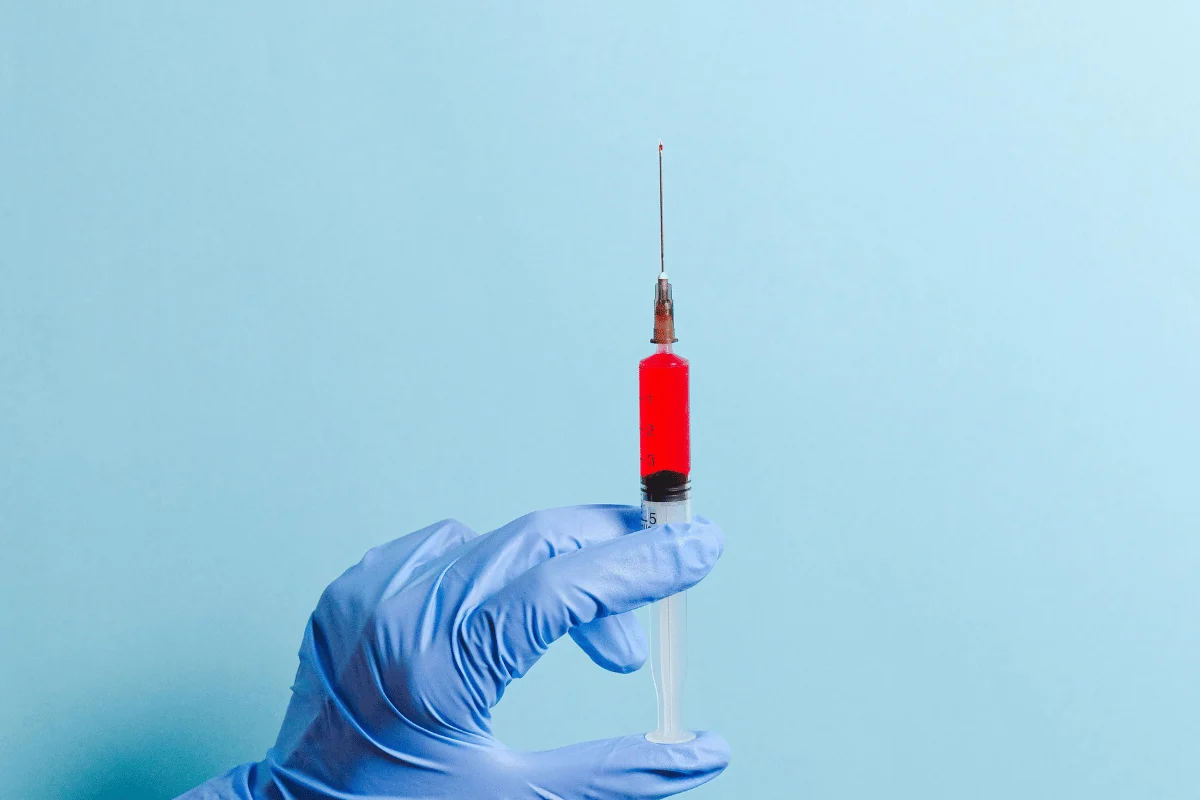
Are Peptides Safe for Bodybuilding?
When peptides first became popular, there were doubts about whether they were safe for long-term use. However, studies have shown peptides have far fewer side effects than anabolic steroids when used responsibly.
Proteins and peptides (PPs) are also deemed safer than small molecular drugs due to their high selectivity and efficacy but fewer side effects.
Clinical research on peptides for bodybuilding purposes is still limited, though. While current evidence suggests peptides can be used safely, no longer-lasting effects are guaranteed.
As with any bodybuilding aid, peptides are not risk-free. Potential side effects include increased hunger, water retention, fatigue, headaches, or reactions at the injection site.
To mitigate risks, consult with a medical professional, use clinical-grade peptides at recommended dosages, follow safe injection practices, and take regular breaks from using them.
Also, regulatory bodies like the FDA don’t approve many human-use peptides, and some are banned in professional sports. So, practice caution before using them.

Benefits of Peptides for Bodybuilding
Here are some of the major benefits you can experience when adding peptides to your muscle-building stack:
- Increased Growth Hormone Secretion: Some peptides directly stimulate the pituitary gland to produce more growth hormone. Elevated GH levels boost muscle growth via IGF-1 production while ramping up fat metabolism.
- Myostatin Inhibition: Myostatin limits muscle growth. Certain peptides, like follistatin, work by inhibiting myostatin, allowing muscles to grow adequately.
- Reduced Inflammation: Intense training causes inflammation, which can impair recovery. Many peptides have anti-inflammatory effects, allowing the body to heal faster.
- Improved Body Composition: Peptides’ combined effects on muscle growth and fat burning make them perfect for enhancing overall body composition.
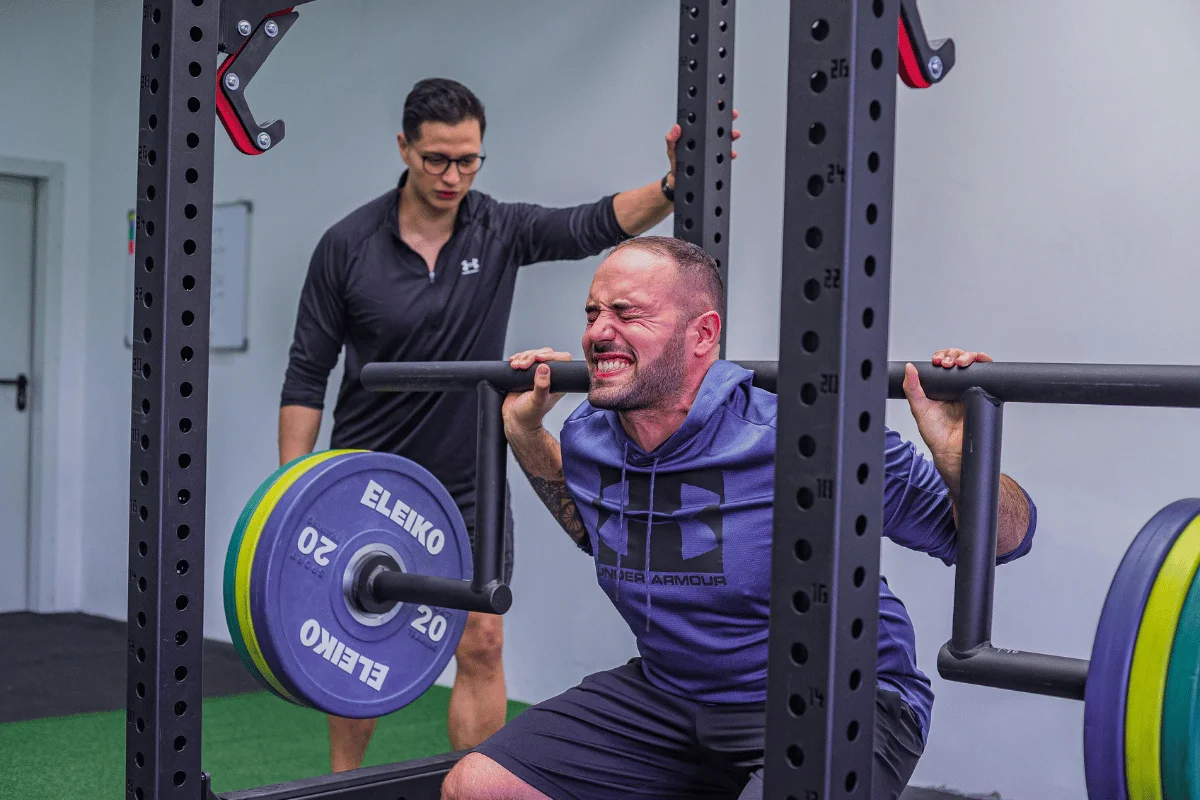
Types of Peptides for Bodybuilding
Let’s explore some of the most popular peptides used in bodybuilding:
1. Growth Hormone-Releasing Peptides (GHRPs)
GHRPs are a class of peptides that stimulate the release of growth hormone (GH) in the body. Two popular GHRPs used in bodybuilding are GHRP-6 and GHRP-2.
GHRP-6
GHRP-6 is known for its ability to boost GH secretion by stimulating the hypothalamus and pituitary gland to release more GH.
Benefits of GHRP-6 include:
- Faster muscle growth
- Improved fat burning
- Better recovery after workouts
A study published in BMB Reports found that a new GHRP-6-biotin combo improved muscle function in cells by boosting key muscle proteins and energy levels. This suggests it could help enhance overall muscle health.
GHRP-2
GHRP-2 is similar to GHRP-6 but is considered stronger. It also stimulates GH release, potentially improving muscle mass and body composition.
Research in PLOS ONE showed that combining GHRP-2 with cysteamine significantly boosted growth in animals with growth issues, leading to notable improvements in muscle development and hormone levels.
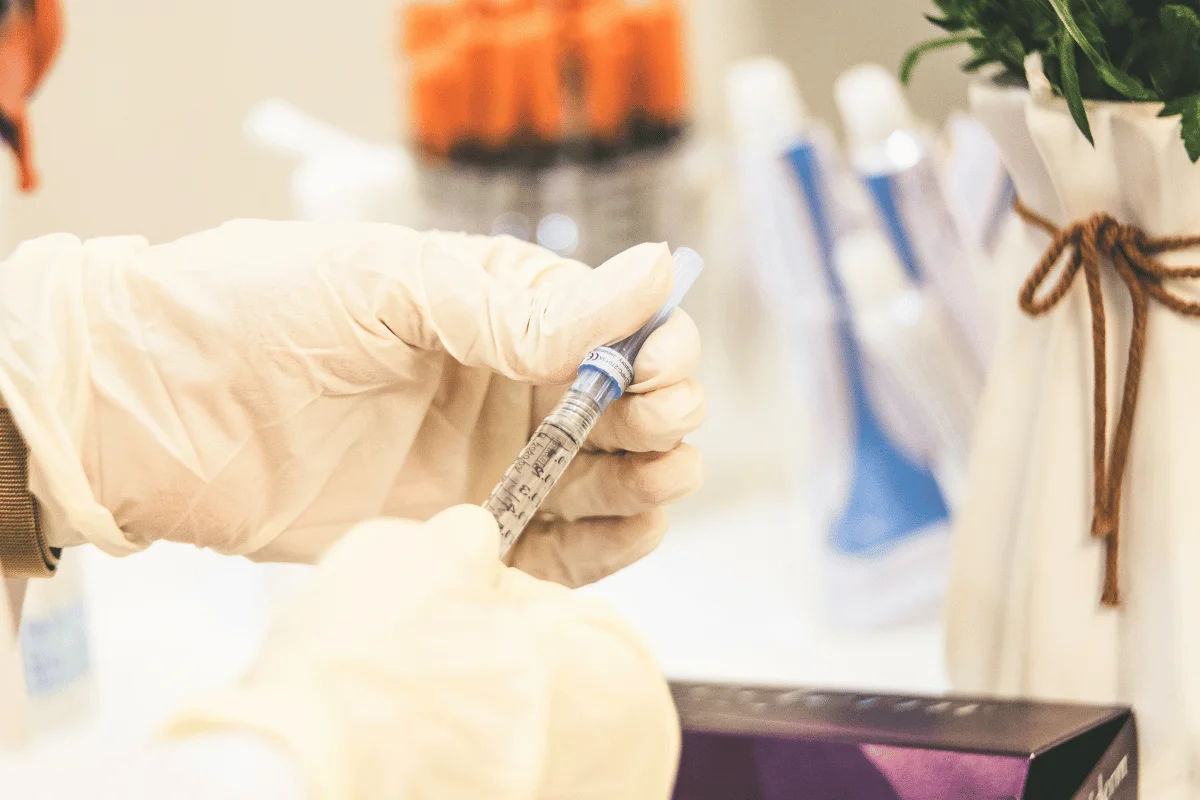
2. Growth Hormone Secretagogues (GHSs)
GHSs are another group of peptides that boost growth hormones. Two popular ones are Ipamorelin and Sermorelin.
Ipamorelin
Ipamorelin is a selective GH secretagogue, meaning it stimulates GH release without affecting other hormones. This makes it a popular choice among bodybuilders looking for targeted benefits.
It doesn’t make you hungry (unlike some other peptides) and works with your body’s natural rhythm of producing growth hormones.
Sermorelin
Sermorelin is a lab-created peptide that acts like the body’s natural growth hormone-releasing hormone (GHRH). It is often used to manage adult-onset growth hormone insufficiency.
Unlike synthetic HGH, Sermorelin encourages your body to produce its own growth hormone, potentially leading to more sustainable results.
It may help aging adults improve sleep quality, increase muscle mass, reduce body fat, and enhance skin elasticity.
3. CJC-1295
CJC-1295 is a long-acting GHRH analog that stimulates GH release over an extended period.
A study in the American Journal of Physiology-Endocrinology and Metabolism examined mice that couldn’t produce growth hormone. The researchers gave these mice CJC-1295 every day for five weeks.
The results were:
- The mice’s body weight became normal.
- Their body length normalized.
- The treatment increased the growth hormone and IGF-1 in their blood by about 40%.
- It also increased the expression of genes involved in growth hormone signaling.
What CJC-1295 might do for you:
- Increase protein synthesis (helping build muscle)
- Promote muscle growth
- Help with fat loss
- Support ongoing muscle growth, even when you’re resting

4. TB-500
TB-500 is a lab-made version of a naturally produced protein in your body called Thymosin Beta-4. It’s known for helping tissues repair and regenerate.
How TB-500 works:
- It increases the production of actin, a protein that helps build cells
- It helps form new blood vessels
- It boosts the production of substances that help heal injuries
TB-500 could be helpful for healing injuries and possibly for recovering from intense workouts.
5. MK-677
MK-677, also called Ibutamoren, mimics a hormone in your body called ghrelin and stimulates the release of growth hormone.
A study in The Journal of Clinical Endocrinology & Metabolism looked at obese men who took MK-677 for 8 weeks. They found:
- The men’s fat-free mass increased
- Their basal metabolic rate (the rate at which they burn calories at rest) increased
- Their levels of IGF-1 increased by about 40%
- However, it also affects their blood sugar balance, so this needs to be monitored
These results suggest MK-677 could be powerful for building muscle and boosting metabolism.
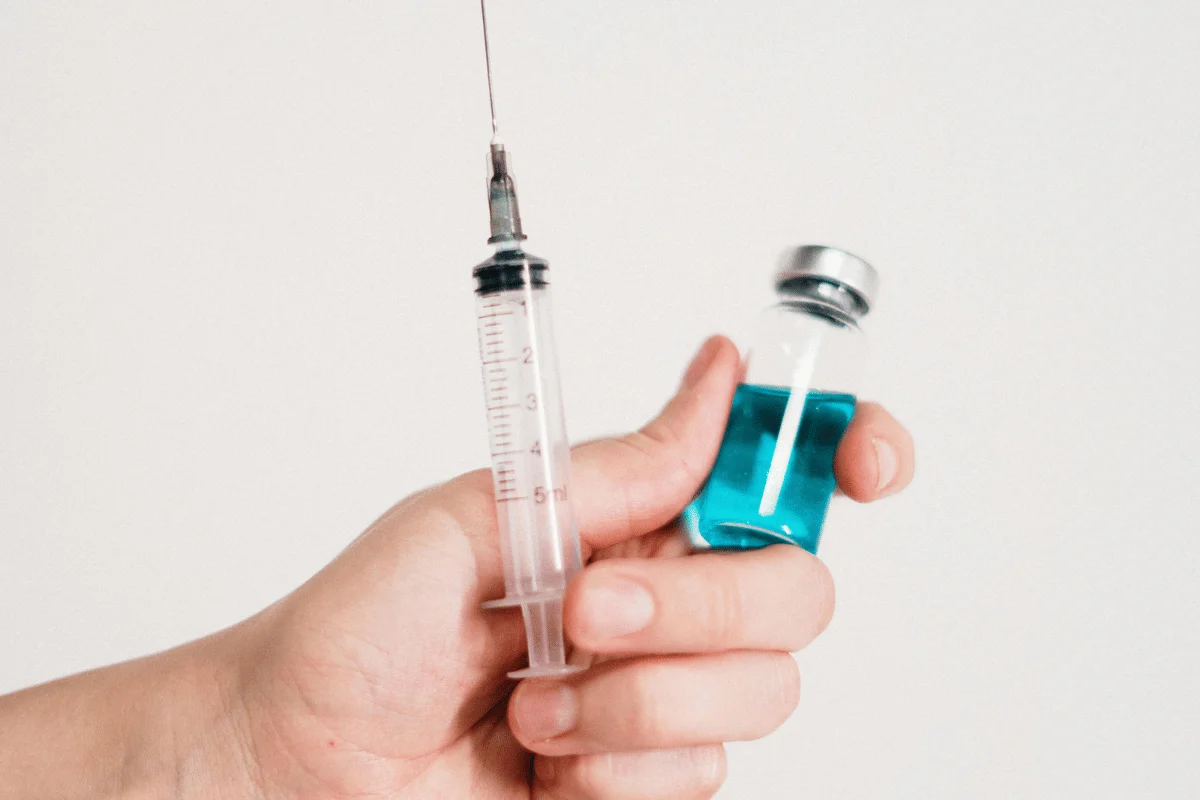
6. Hexarelin
Hexarelin is a synthetic hexapeptide that belongs to the growth hormone secretagogue class. It stimulates GH release from the pituitary gland.
A study in The Journal of Clinical Endocrinology and Metabolism examined how Hexarelin affected growth hormone levels in well-nourished patients aged 20 to 40.
They found:
- Growth hormone levels increased significantly 30 minutes after taking Hexarelin
- These levels stayed high even 180 minutes after taking it
- It also increased levels of other hormones like ACTH and cortisol
This suggests Hexarelin could be very effective at boosting growth hormone levels, which could improve muscle growth and body composition.
7. BPC-157 Peptide for Bodybuilding
BPC-157, which stands for “Body Protection Compound 157,” is a peptide known for its healing properties.
While it might not directly build muscle, it could help bodybuilders by speeding up recovery and preventing injuries.
Potential benefits of BPC-157:
- Faster healing of soft tissue injuries (like muscle strains)
- Promotes the growth of new blood vessels
- It may help with gut health and digestion

8. Collagen Peptides for Bodybuilding
Collagen peptides are becoming more popular among bodybuilders.
Here’s how collagen peptides might help you:
- Improve muscle recovery after workouts
- Support joint health (important for heavy lifting)
- It may contribute to muscle growth when combined with resistance training
A British Journal of Nutrition study found some interesting results:
- People who took 15 grams of collagen daily while resistance training saw increases in fat-free mass and muscle strength
- This was particularly notable in older adults with age-related muscle loss
- Collagen supplementation also seemed to help with recovery from joint injuries
9. MOTS-C Peptide for Bodybuilding
MOTS-C is a mitochondrial-derived peptide that has shown promise in enhancing exercise capacity and metabolic health.
A recent study published in Nature Communications found that mice treated with MOTS-C showed significant improvements in exercise performance, with older mice treated with MOTS-C outperforming untreated middle-aged mice.
Potential benefits for bodybuilders:
- Increased energy levels
- Enhanced fat loss
- Improved insulin sensitivity
More human trials are needed before general use.
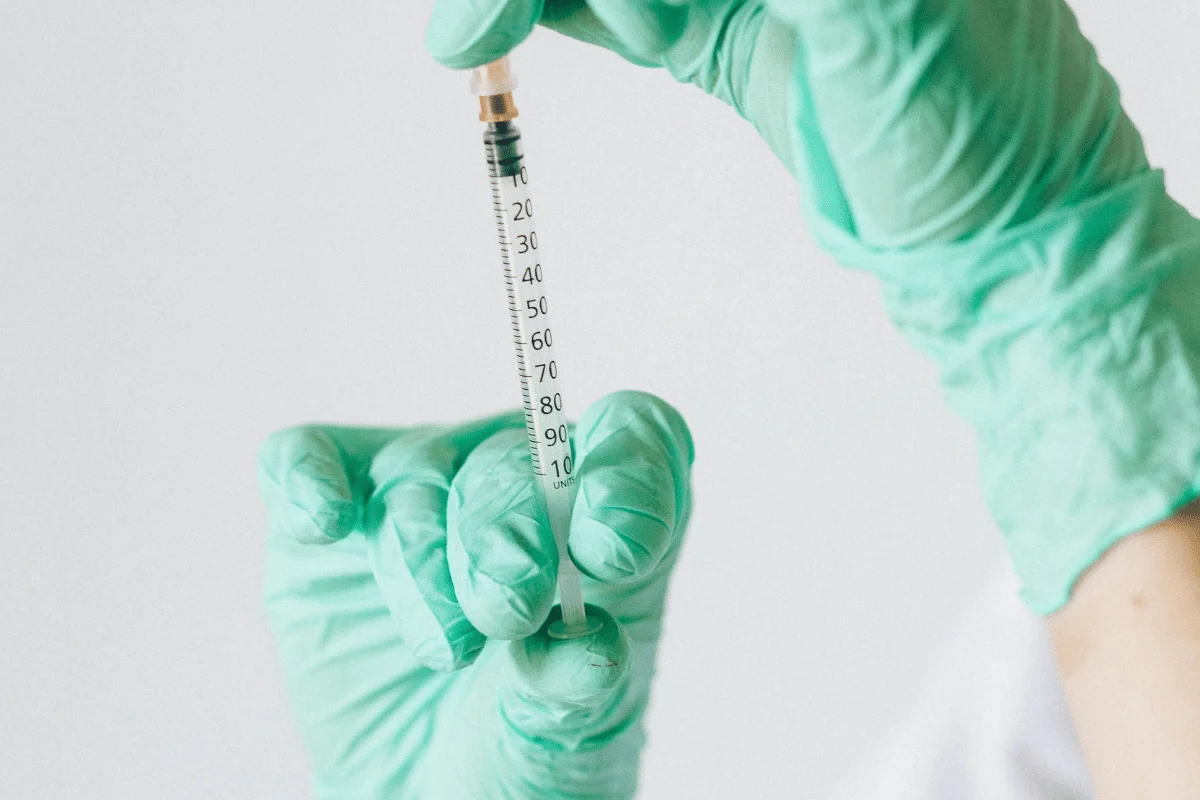
10. Tesamorelin Peptide for Bodybuilding
Tesamorelin (a synthetic peptide) mimics the action of growth hormone-releasing hormone (GHRH), encouraging your body to boost its natural growth hormone production.
Potential benefits of Tesamorelin:
- Reduction in visceral body fat (the dangerous fat around your organs)
- Potential increase in muscle mass
- Improved body composition
An analysis of two randomized controlled trials on HIV patients who used Tesamorelin for 26 weeks found:
- Significant increases in muscle density in four trunk muscle groups
- Increases in the lean muscle area of all four trunk muscle groups
- Increases in the total area of the psoas and rectus muscles
Tesamorelin could effectively reduce fat and increase muscle mass, making it potentially valuable for bodybuilders looking to improve their physique.
11. Nasal Spray Peptides for Bodybuilding
Nasal spray peptides are gaining attention because they’re easy to use and might be absorbed quickly by the body.
Why bodybuilders are interested in nasal spray peptides:
- They might be absorbed better than pills
- They get into your bloodstream quickly
- Non-invasive and easy to use – just a quick spray in your nose
Common peptides used in nasal sprays include CJC-1295 and Ipamorelin, which can help stimulate growth hormone release.
However, more research is needed to fully understand how effective nasal spray peptides are compared to other methods of taking peptides.
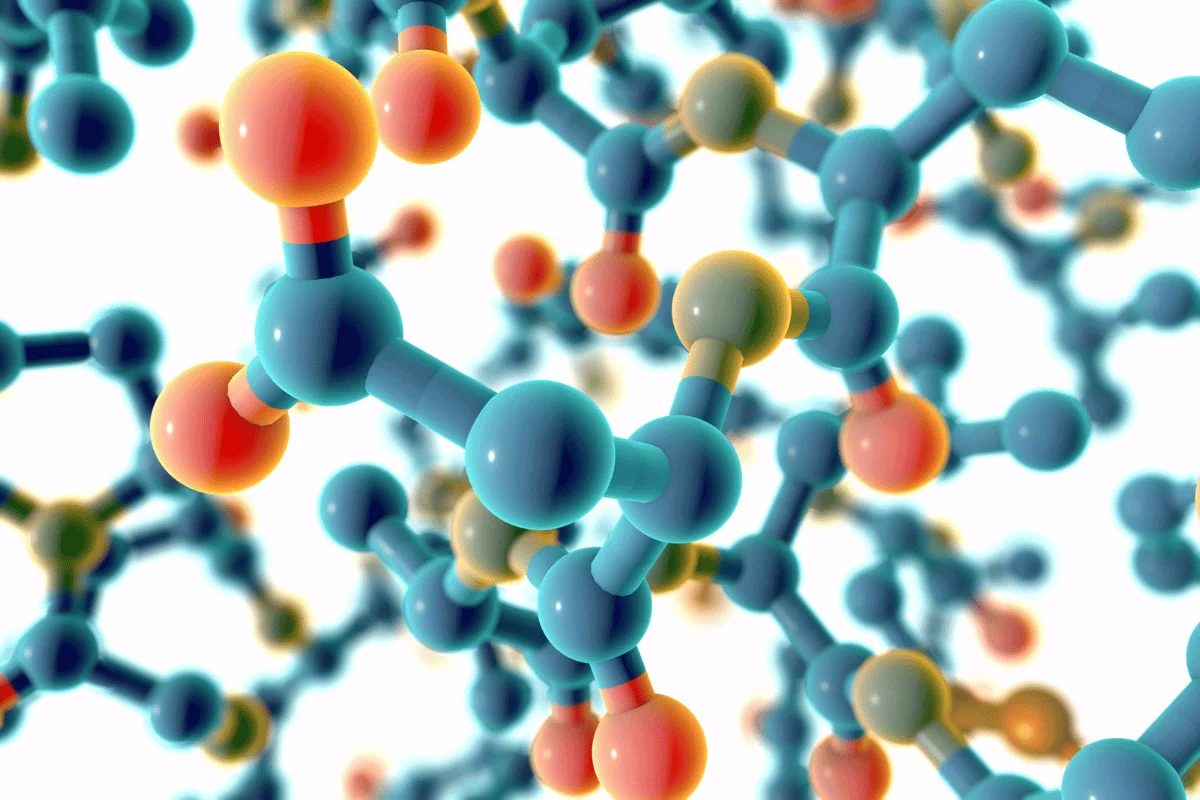
12. Selank Peptide for Bodybuilding
Selank is a synthetic peptide known primarily for its anxiolytic and cognitive-enhancing properties. While not directly related to muscle growth, it may indirectly benefit bodybuilders.
Potential benefits of Selank:
- Improved focus during workouts
- Reduced stress and anxiety (which can help with recovery and hormone balance)
- Enhanced cognitive function (which could help with training consistency and motivation)
13. LL-37 Peptide for Bodybuilding
LL-37 is a peptide naturally found in the body. It’s known for its role in fighting infections and might benefit bodybuilders in the following ways:
- Enhanced immune function
- Anti-inflammatory effects, potentially reducing muscle soreness
- Promotion of wound healing and tissue repair
LL-37 is typically administered via injection, with common dosages starting around 100 mcg per day. More research is needed to understand its effects on bodybuilding fully.
14. Oxytocin Peptide for Bodybuilding
Oxytocin is often called the “love hormone,” but recent research suggests it might have some surprising benefits for muscle growth and recovery.
A randomized controlled trial found some interesting results:
- Older adults with muscle loss who took oxytocin nasally gained about 2.25 kg (about 5 pounds) more lean mass than those who didn’t.
- The exact reasons aren’t clear, but oxytocin seems to have both anti-catabolic (prevents muscle breakdown) and anabolic (builds muscle) effects.

15. SS-31 Peptide for Bodybuilding
SS-31, also known as Elamipretide, is a peptide that targets the mitochondria, the powerhouses of your cells.
It’s caught the attention of the bodybuilding community because of its potential to enhance energy and improve muscle recovery.
Animal research on SS-31 has shown:
- Improved endurance and reduced fatigue in aged subjects
- Enhanced mitochondrial energetics, leading to better exercise performance
- Potential for preserving muscle mass during periods of caloric deficit
While these results are promising, most studies have been done on animals. More research is needed to understand how SS-31 might benefit healthy young bodybuilders.
16. Epitalon Peptide for Bodybuilding
Epitalon is a synthetic peptide with potential anti-aging effects. It’s not directly related to muscle growth but may be of interest when optimizing overall health and performance.
Potential benefits:
- Improved sleep quality, which can enhance recovery
- Possible anti-aging effects
- May support overall hormonal balance
Research on Epitalon is still in the early stages, and more studies are needed before human trials.
As you can see, the world of peptides is huge and constantly changing. With new research published regularly, staying updated on the latest findings and applications can be challenging.
That’s why we’ve created a daily newsletter at All About Peptides, delivering the most recent peptide insights straight to your inbox. Sign up with us now and join thousands of fellow health enthusiasts!
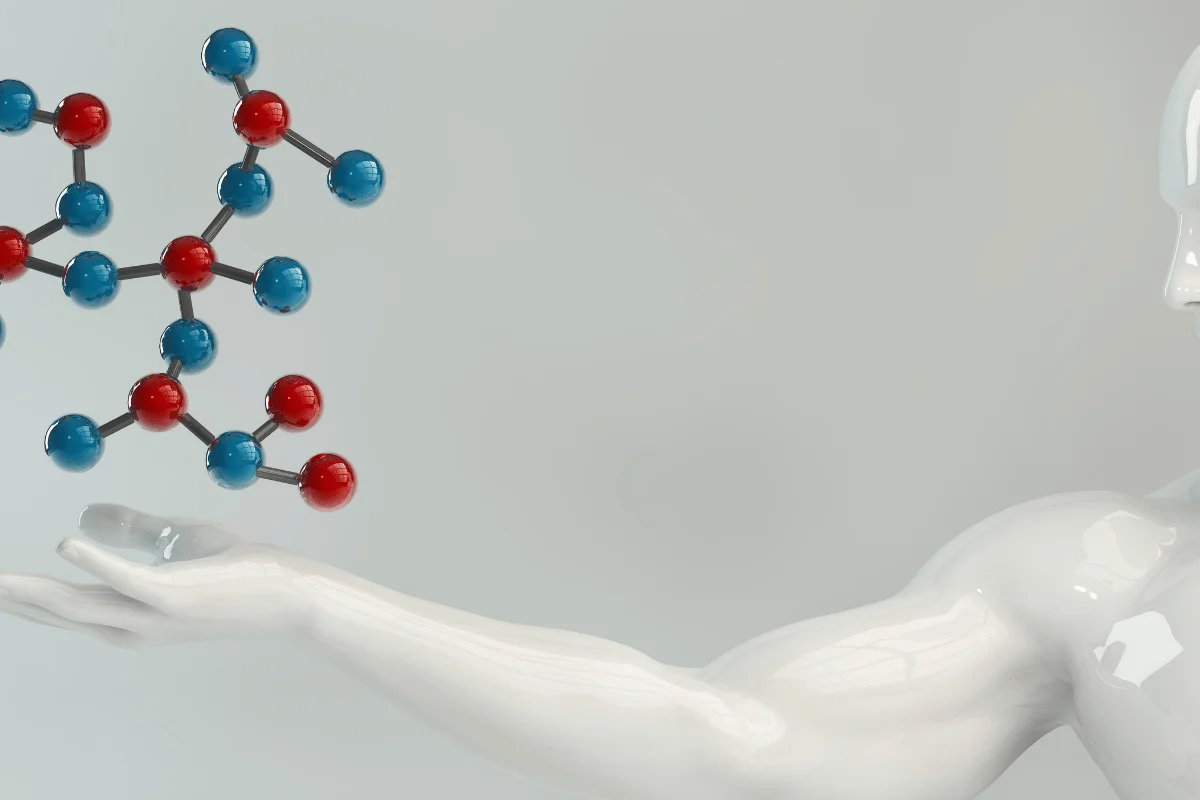
How to Use Peptides for Bodybuilding
If you’re considering using peptides for bodybuilding, here are some step-by-step guidelines:
- Consult a Medical Professional: Before starting any peptide regimen, consult a healthcare provider or endocrinologist familiar with peptide therapy.
- Choose Your Goal: Fat loss, muscle gain, injury recovery, etc. Different peptides have varied effects.
- Select Your Peptides: Research which peptides can best achieve your goals based on the information above.
- Obtain High-Quality Peptides: Only use clinical-grade peptides from reputable suppliers to ensure safety.
- Plan Your Cycle: Common peptide cycles last 4-12 weeks. Start low (1-2 mg/day) and gradually increase the dosage (depending on which one you’re using).
- Incorporate Into Your Routine: Peptides complement diet, training, and cardio – don’t view them as replacements.
- Reconstitute and Inject: If using injectibles, some Peptides come as a freeze-dried powder to mix with or from bacteriostatic water. Inject subcutaneously using an insulin needle. Rotate injection sites.
- Begin Post-Cycle Therapy: After your peptide cycle, run PCT for the same length to get hormones functioning normally again.
- Monitor Your Body: Pay attention to how your body responds and discontinue use if you experience adverse effects.
Keep the dosage low initially and slowly increase it based on your body’s tolerance. Never exceed the clinically recommended dosage guidelines for any peptide.
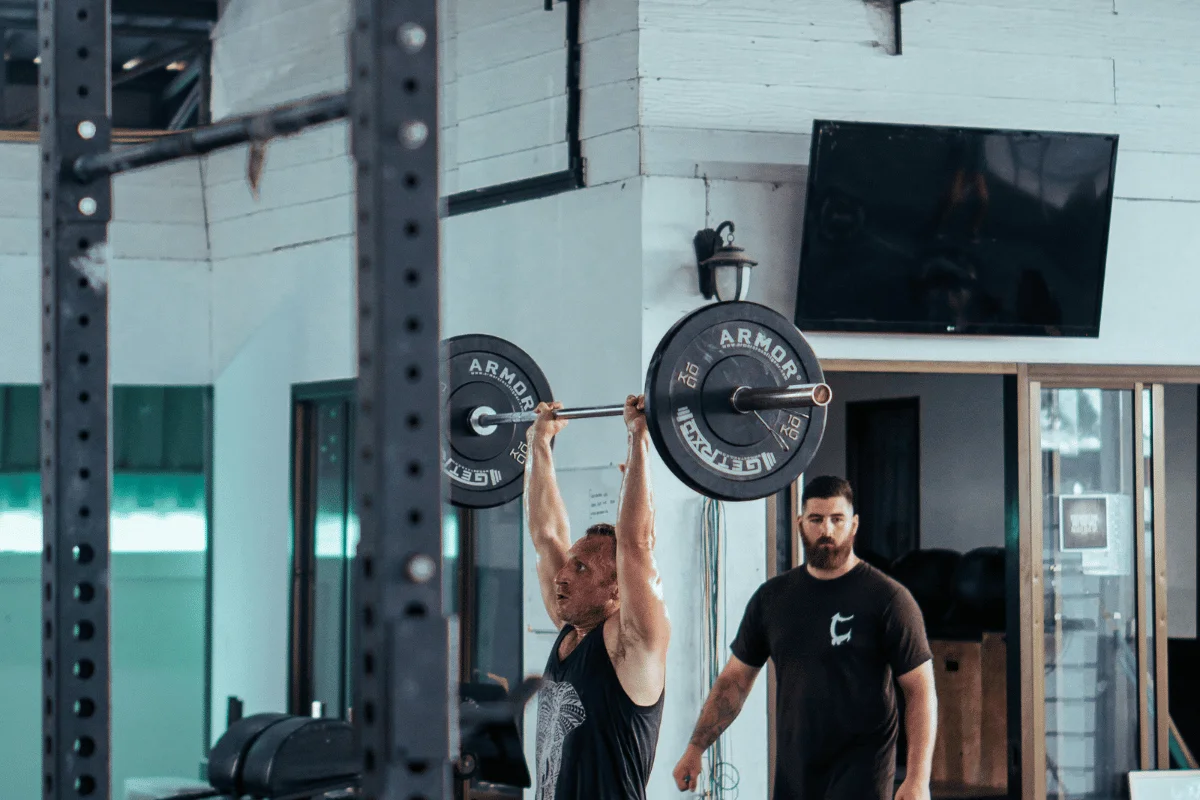
Potential Side Effects of Peptides in Bodybuilding
While peptides are generally considered safe, they can still cause side effects:
- Injection site reactions (redness, pain, swelling)
- Water retention
- Increased hunger
- Numbness or tingling in extremities
- Changes in blood sugar levels
- Potential impact on natural hormone production
Have an advanced blood panel done to establish healthy baselines before and after running any peptide cycle.

Frequently Asked Questions (FAQs)
Let’s address some common questions about peptides in bodybuilding:
Are Peptides a Replacement for Traditional Bodybuilding Methods?
No, peptides should not be seen as a replacement for proper diet, training, and rest.
They’re best viewed as a potential supplement to enhance bodybuilding efforts. Consistent training and proper nutrition are the foundations of healthy muscle growth and fat loss.
How Do Peptides Compare with Steroids in Terms of Safety and Efficacy?
Peptides are generally considered safer than anabolic steroids, with fewer and milder side effects. They’re also typically less potent in terms of muscle-building effects.
Steroids can lead to more dramatic results but come with a higher risk of serious side effects and legal issues.
Can Peptides Be Used by Beginners in Bodybuilding?
Due to limited research on long-term impacts, peptides are not recommended for beginners. Natural bodybuilders should first optimize training, nutrition, and sleep.
More advanced athletes may try peptides cautiously after properly educating themselves.
Are There Any Natural Alternatives to Peptides for Bodybuilding?
Yes, there are natural ways to support muscle growth:
- High-intensity interval training (HIIT)
- Getting adequate sleep (7-9 hours per night)
- Intermittent fasting
- Consuming foods rich in amino acids like arginine and glutamine
- Reducing sugar intake
- Managing stress through meditation or yoga
These natural methods can be effective and come with additional health benefits.
Conclusion – Best Bodybuilding Peptides
Peptides offer exciting potential for bodybuilders, but they’re not magic pills. Always prioritize proper nutrition, consistent training, and adequate rest. If you’re considering peptides, research and consult a healthcare professional.
Want to dive deeper into the world of peptides? Join us at All About Peptides! Our daily newsletter brings you the latest insights on using peptides for peak performance and health optimization.
Whether you’re a seasoned bodybuilder or just starting your fitness journey, we have something for you. Subscribe now and join our community of biohackers!
See you on the other side!








